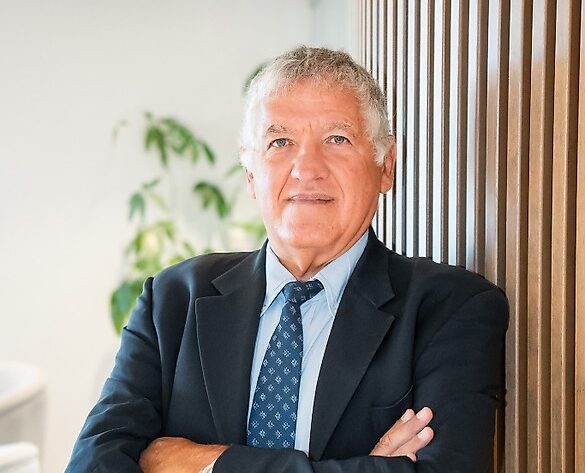
A pioneer in Greece’s IVF sector, Dr Pantos outlines his ambitions to expand access to fertility services.
Q: What was the impetus behind the clinic’s founding?
The vision was to provide services to infertile couples, who represent 18% of all couples of reproductive age wanting to have children. They face various issues: on the woman’s side, that includes ovulation or genetic problems, and on the man’s side, typically related to sperm quality. We specialise in this area and find the reason for infertility, treat it and enable couples to go ahead with natural intercourse or follow up with fertility techniques like in vitro fertilisation (IVF). We have had excellent pregnancy rates.
Demand has increased exponentially over the years we have been in operation, and Greece has become a hub for fertility services. We have seen a shift in attitudes from the community where women are interested in becoming mothers when they are older. IVF procedures have increased as more women turn to assisted reproduction. In Greece, around 7% of babies are born through IVF, compared to 2.5 to 3% in other countries. Demand continues to rise despite an ageing population, as many women delay childbirth and face common ovulation-related challenges.
Q: How do you cater for demand from German and other international patients?
We have expanded our services beyond Athens, establishing IVF units in Crete, Larissa and Alexandroupolis, giving international patients the flexibility to choose the location that suits them while also serving local communities. Crete is known for its tourism, while Larissa and Alexandroupolis are close to the border with Turkey and the Balkan countries. We have many clients who come from Germany because Greece offers more affordable medical services while also providing unique and attractive destinations for tourists. We also have flexible and liberal laws concerning egg donation and surrogacy. We perform egg diagnostics and embryo freezing, offering procedures that are more liberal than those permitted in Germany.
Q: What opportunities exist for collaboration with Germany in the health sector?
The whole of Europe is going through a demographic crisis now, especially in Greece. The demand for having children is expected to rise in the coming years, particularly among older women. With countries offering incentives to boost population growth, demand for fertility services is likely to increase significantly. Greece is such a small country in comparison to Germany, but it can be a haven for couples seeking out these services. We offer real value through this model, and the future lies in collaboration.
With Greece’s medical tourism profile on the rise, Sfakianoudis discusses the clinic’s role in developing the sector.
Q: How do you support innovation in the sector?
We apply a combination of science and common sense – science in delivering specialised services, and common sense when speaking with couples about their efforts to conceive. Innovation and broader thinking have always been part of our DNA. We performed the first blastocyst in Greece in 1997 and held the first preimplantation genetic diagnosis screening in 2004. In addition, we have delivered HLA-matched embryos to help save siblings from diseases like haemochromatosis through stem cell transplants.
We were also the first in Greece to deliver a baby following an ovarian tissue transplant in a woman who previously battled cancer. The woman had cancer in 2013, and we froze her ovarian tissue before performing the transplant after she recovered. Her ovarian function returned, she had a baby in 2024 and is now pregnant with her second baby.
Q: How do you champion Greece’s medical tourism sector?
There are reforms taking place and incentives are being offered by the government, but Greece holds a unique spot in Europe and the world. Its climate and popularity as a tourist destination are unique, along with its Mediterranean cuisine, beaches and history. This is also a country famous for its excellent and affordable service. Greece is also more liberal than many countries in terms of legislation, making it a supportive environment for building and running an IVF business.
We plan to create a unit on an island for medical tourism purposes, somewhere like Santorini. We also aim to partner our IVF clinic with teaching hospitals and universities worldwide, to offer affordable, high-quality healthcare services in a unique setting. The opportunities are significant, as such services are currently unavailable in the island areas.
Q: What role does education play?
We aim to educate people about the physiology of fertility, how to protect it and the available options based on Anti-Müllerian Hormone testing, which measures ovarian reserve. If women learn about their ovarian reserve early, 83% adjust their fertility plans – either by choosing to have a child sooner or by freezing their eggs. By freezing their eggs early, women can use them until they are 54 in Greece to have a child. By conducting this work, we aim to pave the way for a new mindset across Europe.

